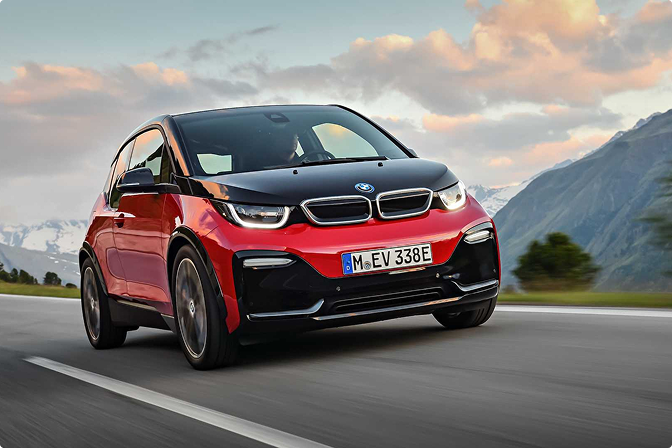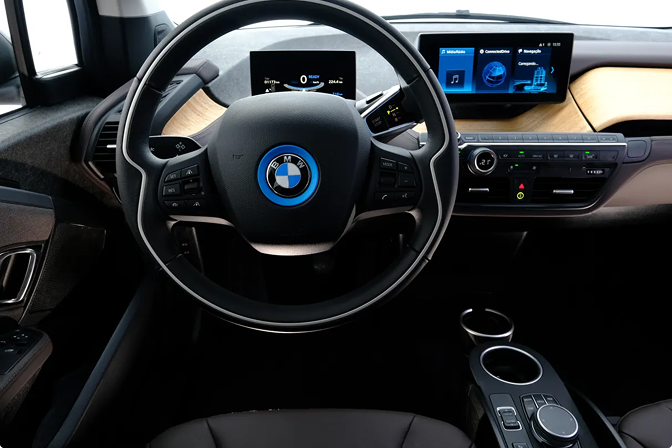An ultra-connected car
An unprecedented Vodafone M2M solution has been implemented in the BMW i3 model, providing internet access, smartphone integration, concierge via a call center, and even a serious accident detection system.
Innovative technology
Vodafone, one of the world’s largest telecommunications companies, and the BMW Group broke new ground by partnering to include innovative M2M and IoT (Internet of Things) services in the latest model of the automaker in Brazil, the BMW i3. This is a first-of-its-kind technology in the country, in which the car leaves the German factory with an embedded SIM Card, offering users a range of benefits at no cost and without the need for configuration on Vodafone’s network in Brazil or pairing with the owner’s smartphone. Through the SIM Card, the vehicle’s Connected Drive technology can be used, allowing internet access on a widescreen display located in the dashboard. With it, users can interact with smartphones via various BMW apps, calculate routes based on real-time GPS traffic information, and access social networks. The system also offers a concierge service via a call center, where users can contact customer support to locate nearby establishments or request tourist information, for example. In some cases, it can even complete a full operation, such as sending flowers.

There is nothing comparable in Brazil, in terms of functionality, among cars currently on the market.
Arthur Ribeiro
Marketing Manager, Vodafone Brazil
Moreover, Vodafone’s SIM Card interconnection technology enables the system to detect serious accidents and automatically contact SAMU (Serviço de Atendimento Médico de Urgência), sending the vehicle’s location and precise telemetry-verified data, such as number of occupants and deployed airbags. “There is nothing comparable in Brazil, in terms of functionality, among cars currently on the market,” notes Arthur Ribeiro, Marketing Manager at Vodafone. According to him, configuring the German SIM Card to Vodafone’s Brazilian network is done automatically, requiring no manual intervention for installation. “For this, we created a specific SIM Card model.” The development of the car’s dashboard system, Ribeiro says, took about a year to be made feasible.

Independent control
As a global Vodafone customer, BMW chose the operator for this connectivity model not only because of the automatic SIM Card transformation for the national network but also due to the ease of worldwide management of connected devices. “We developed for the automaker a global connection management platform, through which BMW can control all connected devices online, monitoring customers’ data usage across multiple countries,” explains Ribeiro. “From Germany, the operator can, for example, view usage per device and per access for customers in Brazil and report any service failure to Vodafone.” According to Vodafone’s marketing manager, this gives BMW greater independence in managing its customers’ connectivity and freedom to administer all information within the platform. “Having global control of this service was fundamental for our headquarters to choose us,” he emphasizes. This technology is expected to be embedded in new BMW models not yet defined by the automaker.
